|
|
|
|
 |
|
Class XVIII Fellows on a swamp buggy tour at Florida Panther National Wildlife Refuge.
|
|
|
Hurricane Michael
Many NRLI alumni, Fellows, and partners were directly impacted by Hurricane Michael. Others have family and/or friends who were severely impacted by the storm. Many are involved in relief and recovery efforts.
You are in our thoughts, and thank you for all that you are doing to help impacted areas and families.
|
|
Director's Corner
Shortly after the NRLI session on panthers described below, I took part in the 2018 Public Land Acquisition and Management Conference (PLAM) in Sarasota. The theme was "One Florida," and the focus was on partnerships. Public and private land managers, real estate professionals, consultants, representatives from agencies and non-profits, ranchers, and even a few academics were in attendance, and I found the experience inspiring. It is worth noting that I was one of nine NRLI program alumni and Fellows*, appropriate for a collaboration-themed event.
Discussing public lands in Florida can be depressing as development pressures eat away at green space and drink down our aquifers, but the impressive cases of creative and collaborative partnerships were uplifting and provided strong evidence for significant progress in preserving and effectively managing our land and water resources. Two (of many) examples that jumped out at me were the St. Marks Corridor in the panhandle and Blackbeard's Ranch in Myakka City. I left Sarasota feeling very positive. That said, sandwiched between panels on "Working land and water partners," "Conservation easements," and "Data-driven decision-making" were presentations by Jen Carlisle of Visit Florida and Chris Emmanuel, Director of Governmental Affairs for the Florida Chamber of Commerce. Both presented startling and sobering figures on growth in our state. If Florida were a country, it would have the 17th largest economy in the world. In 2017, Florida received 118 million visitors who spent $112 billion dollars. That is a lot of people, an average of over 326,000/day who need "places to stay, places to play, places to eat and drink". More startling still are Chamber projections showing 5 million additional Floridians by 2030. Twelve years from now there will be approximately 26 million people in the state (
https://www.flchamber.com/did-you-know-that-floridas-population-could-increase-to-nearly-26-million-by-2030/
) and, according to Emmanuel, Florida will need 30% more water to meet their basic needs. What do these figures mean for the future of panthers? For farm and ranch lands? For our forests, prairies, lakes, and rivers? For coastal and marine environments? For our urban areas? It was not lost on those at the conference that Florida is in the midst of a red tide disaster, nor that the IPCC just released a highly disturbing update on climate change impacts. As I type these words, the Panhandle is struggling to recover from horrifically damaging Hurricane Michael.
The Secretary of the Florida Department of Environmental Protection (FDEP), Noah Valenstein, opened the conference by challenging the audience to think of a single Florida town or city that is not, at its core, based on natural resources. Not surprisingly, I could not come up with any. He and others challenged the natural resources community to see themselves as working toward a common goal, to act together even if their specific objectives, strategies, and vehicles vary. As I have written before, pressure on our natural resources is increasing. And so is pressure on decision-making. We can make good decisions if we collaborate effectively, not perfectly, but effectively.
There is an election in just a few weeks. We will soon elect a new governor, congressional, state, and local representatives. Get out and vote. And regardless of who wins, lets keep our eye on the prize--a Florida that sustains its natural resource base.
~Jon Dain
*Bob Heeke, Deborah Burr, Hank Vinson, Jono Miller, Lindsay Cross, Keith Rowell, Daniel Alsentzer, Cyndi Fernandez, & Jonathan Dain
|
|
|
|
|
|
|
Session 2
Endangered Species: The Future of the Florida Panther
Naples, September 26-28, 2018
NRLI Class XVIII met in Naples September 26-28 for their second session. The issue focus was Endangered Species: The Future of the Florida Panther.
David Shindle, Florida Panther Coordinator, U.S. Fish and Wildlife Service (USFWS), was the guest speaker and provided an overview of the history and current status of Florida Panther recovery efforts, as well as challenges related to human-panther interactions.
For the field trip, Fellows were treated to a swamp buggie tour with Kevin Godsea, Project Leader, Southwest Florida Gulf Coast Refuge Complex, USFWS as well as a swamp/wet walk.
Fellows also had the opportunity to learn about the diverse perspectives on the issue from stakeholders:
- Kevin Godsea;
- Mark Lotz, Florida Panther Biologist, Florida Fish and Wildlife Conservation Commission;
- Jennifer Korn, Wildlife Biologist, Johnson Engineering; Outreach Contractor South-Central Florida, Defenders of Wildlife;
- Carol Pratt, Director, Golden Gate Estates Area Civic Association; and
- Jack Johnson, Rancher; President, Jack and Ann's Feed and Supply Inc.; Commissioner, Immokalee Water & Sewer District.
The Project Team would like to extend a huge thanks to Jess Sutt (Class XVIII Fellow) and alumni Jess Ryals (Class XIV) and Angeline Scotten (Class XV) for their help planning and organizing the session!
At session 2, the curriculum focus included an introduction to conflict, positions and interests, the triangle of needs and interests, empathic listening, and an introduction to the practicum project. The Fellows were also tasked with introducing themselves to the group in 2 minutes (no PowerPoint allowed)--what makes you tick?
|
Each month, we ask a pair of Fellows to review the session in their own words. This article describes reflections from the point of view of Fellows Jay Garcia and Ashley Pardee.
|
Fellows' Article
By Jay Garcia and Ashley Pardee
As our group stepped further through the waist-deep tea-stained waters within the Florida Panther National Wildlife Refuge, Larry Richardson, a retired biologist from the Refuge, assured us that the resident female alligator had not been observed for several months. Some Fellows began to feel exploratory bites beneath the cool, opaque waters from either curious resident fish or submerged tree roots come to life. Still, all members of our party continued forth through the murky waters. As we progressed through the swamp, we passed scores of propagated ghost orchid seeds, all produced from a single seed pod capable of producing millions of seeds. The ghost orchid is a notoriously difficult species to propagate from seed and the plants we saw, buoyed by burlap to resident tree trunks, were a test to see if the plants could be grown to maturity in the field from seed extracted in a greenhouse setting. As other wild orchids looked down upon our gathering, we continued listening to Mr. Richardson's tales of the infant years of the Refuge, including conducting prescribed burns when the total refuge staff included two people!
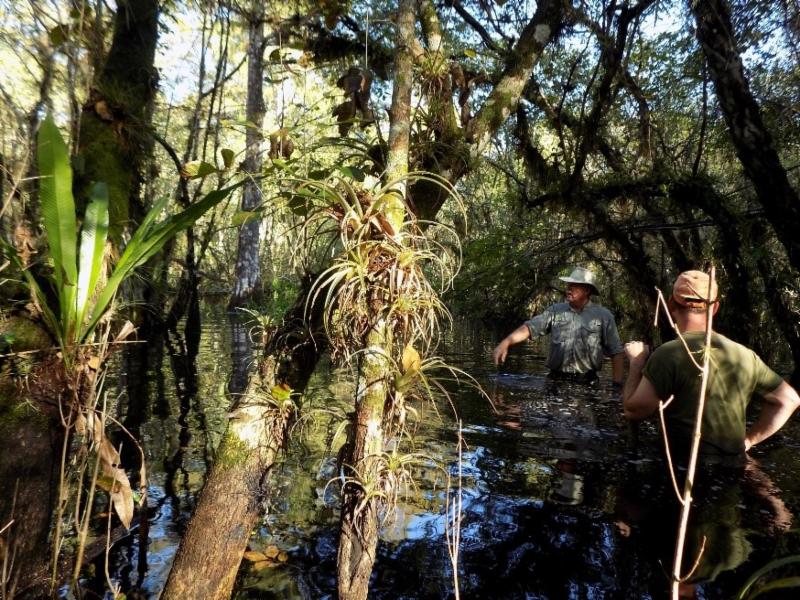
As one group explored the swamp by foot, others explored the Refuge by swamp buggy, guided by the Refuge's Project Leader, Kevin Godsea, who discussed the current challenges of managing the property, including native cabbage palm encroachment and invasive species. The field trip gave us first-hand perspective on the habitat and challenges involved with the focus of the NRLI session, the recovery of the Endangered Florida Panther.
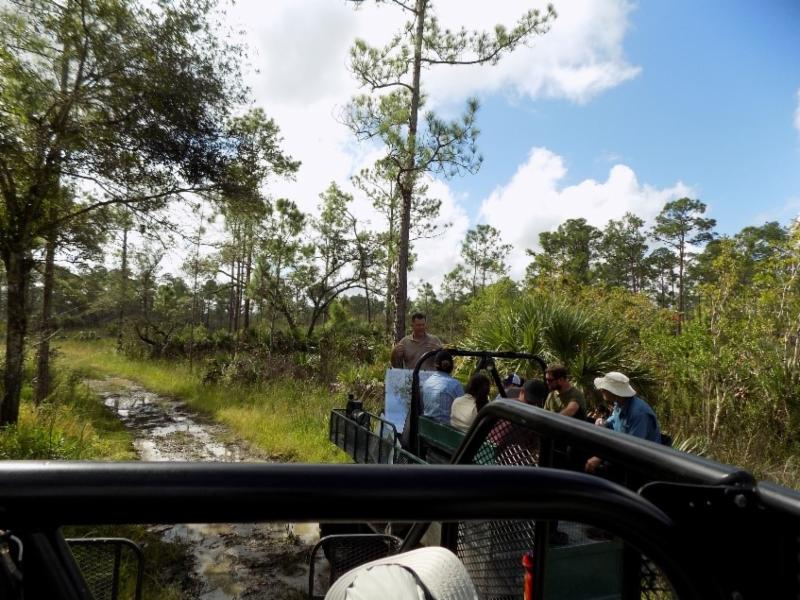
After our venture into the Refuge, the group convened at the IFAS Extension Office in Immokalee where Karen & Cat prepared us for our second stakeholder panel. Now having some experience with the process, the group thought beyond the opening and closing questions and began to form a more cohesive approach to the panel discussion. Our approach to the second stakeholder panel was slightly different due to the introduction earlier in the session of tools useful in interpreting and managing conflict - empathic listening and the triangle of needs and interests. As panel members spoke, we employed the listening skills that we practiced with each other the day before and tried to frame the interactions with the panel using the triangle of needs and interests. Knowing that the procedural and psychological factors play an equally important role in effectively managing conflicts was eye-opening.
During the stakeholder panel, we received frank opinions about the conflicts inherent in the recovery of a predator species and the bureaucratic barriers to ameliorating the impacts of the panther on ranchers. Although we took a more thorough approach to the panel, the debriefing revealed room for improvement and alternate methods. The process is constantly evolving as we move through the sessions, gather new ideas, and apply techniques learned.
Bookending the field trip and stakeholder panel were the classroom sessions in Naples. Class XVIII Fellows arrived and settled into fellowship and lunch after a morning of travel. The Fellows greeted each other as old friends, but before the session finished on Friday, we would know even more about each other from our two-minute personal introductions. Some of the introductions were funny, some were deeply personal, others were interactive, and all helped us feel closer as a community. There were many approaches to the introductions and we all got to know more about each other. We also received a briefing from Dave Shindle, Florida Panther Coordinator for the U.S. Fish and Wildlife Service, on all the facets of Florida Panther recovery. Many of us were unaware of the status of Panther recovery and the potential for the species to move north of the Caloosahatchee River in the near future.
As session two of NRLI Class XVIII came to a close, Fellows worked on generating the beginning buds of ideas for our Practicum Projects. Looking at the sticky notes on the board showing all of the possibilities and hearing the Fellows discuss the background of their projects got everyone's creative juices flowing for ideas and possible collaborations. Amy and Lily did a great job with our session review and the feedback panel was well organized. It gave closure to the week and helped make the concepts concrete in our minds. We left looking forward to our next session in Destin, unaware of the impacts that the northern Gulf coast would face in the near future.
|
|
Spotlight on Class XVIII Fellows
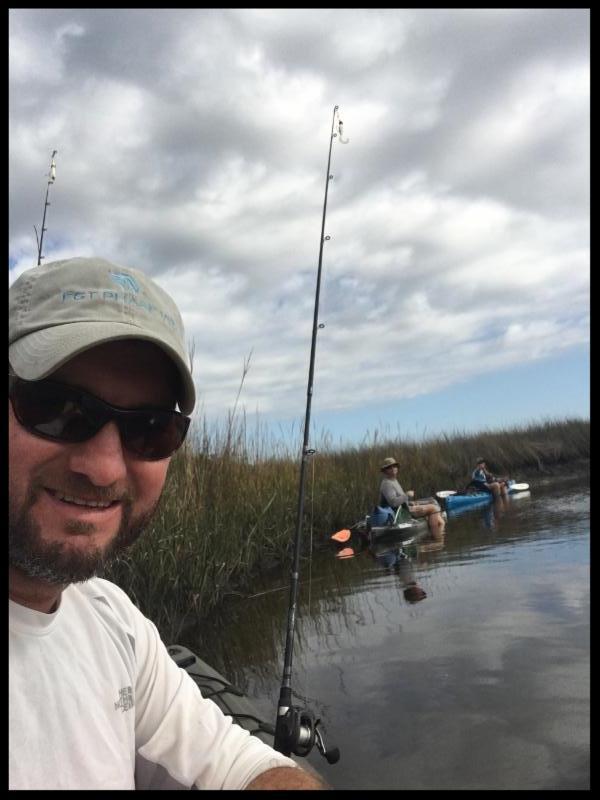 Bill McKinstry Bill McKinstry
Land Management Program Manager
Suwannee River Water Management District
Bill was born and raised in the rural settings of Levy County by two wonderful parents and is a lifelong Episcopalian. He is a devoted husband to his beautiful wife Teri and a passionate father for his daughter Faith. Teri and Bill are also excited and patiently waiting for the birth of their son Taylor later this year.
He obtained his bachelor and master degrees from the University of Florida in forestry and other environmental related sciences. Previous careers as a private consultant, wildlife biologist for the State, County employee, and a researcher have molded his path and provided him the opportunity to work all over Florida. Today he leads and coordinates the planning and implementation of land management activities and emergency management operations for the Suwannee River Water Management District.
In his free time he enjoys exploring the outdoors, visiting both coasts, fishing around the islands of Cedar Key, cooking, traveling, and learning about bygone eras. This desire to learn about history came naturally and early in his life. His family was one of the original families to settle Alachua County which sparked a great interests in history but, to the dismay of his wife, it has caused a room in their house to be overrun with historical literature on Florida. He is a proud Christian, family man, friend, freemason, and land manager who currently resides in Lake City, FL.
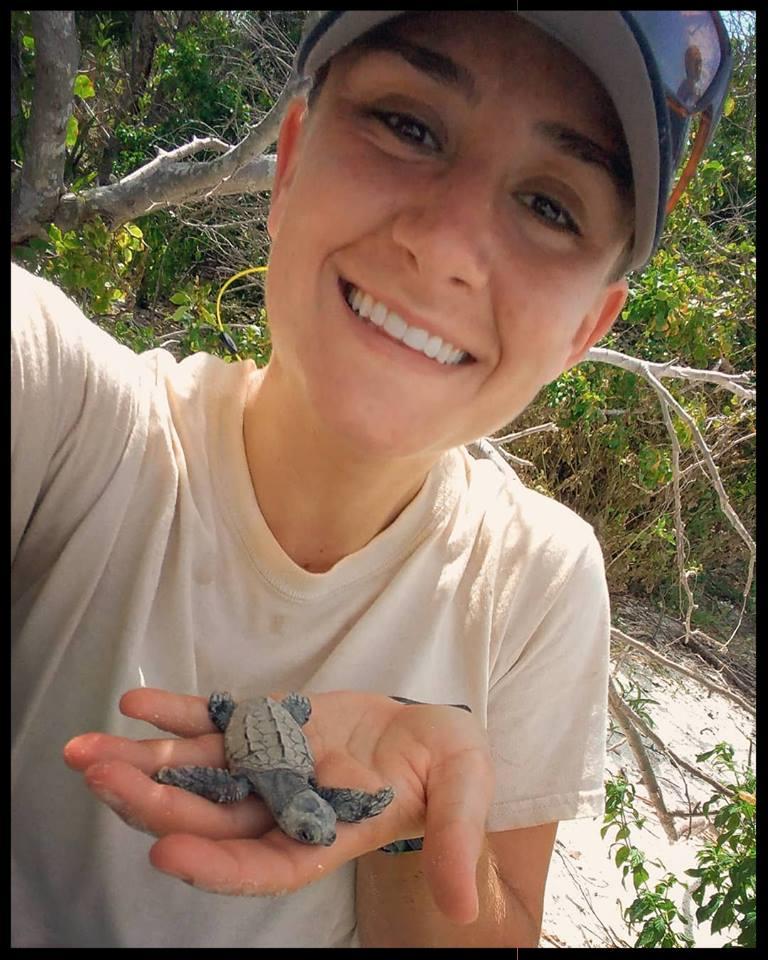 Jess Sutt Jess Sutt
Wildlife Refuge Specialist
Southwest Florida Gulf Coast Refuge Complex, U.S. Fish and Wildlife Service
Jess Sutt is a 2011 graduate of Warren Wilson College with bachelor's degrees in Conservation Biology and Environmental Education. She holds an MS in Fisheries and Aquatic Sciences and an Environmental Communications certificate from the University of Florida, where her human dimensions research focused on stakeholder engagement and conflict management within the goliath grouper fishery. Since finishing her studies in 2014, Jess has worked as Wildlife Refuge Specialist for Florida Panther and Ten Thousand Islands National Wildlife Refuges in the Naples, FL area. Outside of a rewarding career, she most enjoys biking, camping, gardening, just about any water activity, and spending time with her family of two dogs, a snake, and a pot-bellied pig.
Vanessa Bessey
Environmental Administrator
Florida Department of Agriculture and Consumer Services, Office of Agricultural Water Policy
Vanessa has a B. S. in Chemistry from the University of Central Florida and is an Environmental Administrator with the Florida Department of Agriculture and Consumer Services (FDACS) Office of Agricultural Water Policy (OAWP). She is responsible for overseeing field staff activities for operations in south and southwest Florida. The main mission of the OAWP is to assist agricultural producers with our Best Management Practices (BMPs) program. This includes performing on-site assessments and identifying BMPs to improve water quality and to reduce water quantity used on the operation. Vanessa considers herself lucky to work with such amazing people and to get to learn something new every day. Prior joining the OAWP, Vanessa was the Environmental Resources Director for St. Lucie County
Vanessa lives in Okeechobee with her two sons, Jake 16 and Luke 12, and dog Annie. In her spare time Vanessa Loves to craft, go picking, and hunting.
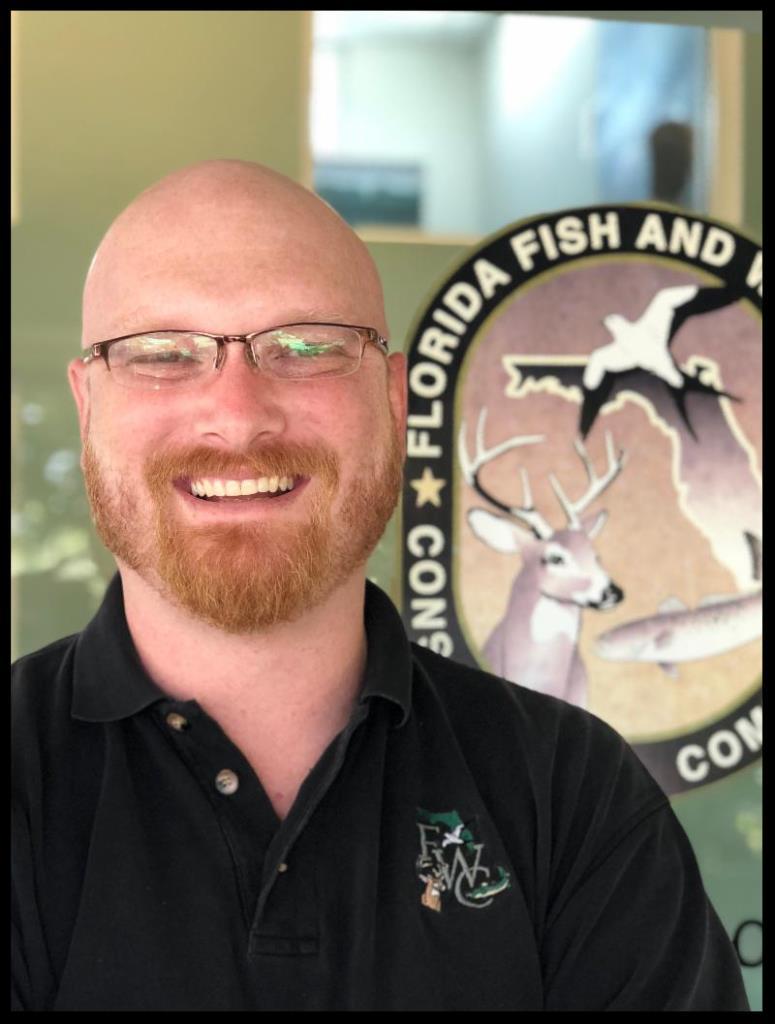 Wes Seitz Wes Seitz
Public Hunting Areas Biologist
Florida Fish and Wildlife Conservation Commission
Wes Seitz is Florida Fish and Wildlife Conservation Commission's (FWC's) Public Hunting Areas Biologist for the South Florida region, a position that assists in coordinating recreational programs on nearly 2 million acres of land held in the public trust. For more than a decade he has enjoyed working with South Florida's diverse stakeholders and understands the importance of public participation in conservation. Wes has also facilitated agency rulemaking resulting in over 220 rule changes, many of which represent an increase in recreational opportunity or an important measure to protect public resources. Wes holds a bachelor's degree in environmental science from the University of Florida.
|
|
Alumni Engagement Updates
Continuing the NRLI Conversation Part 1, How Agencies Transfer NRLI Knowledge, written by Jessica Stempien
What does it mean to an organization to send employees to NRLI? What do organizations do when they have multiple employees as NRLI alumnae or fellows? How can an agency capitalize on the competencies the alumnae and fellows have garnered and transfer it internally and externally?
To date the Florida Department of Agriculture and Consumer Services (FDACS), Office of Agricultural Water Policy (OAWP) has sent seven employees to NRLI, including myself. This year OAWP is sending three of its staff members. Although each of us has different perspectives, backgrounds, and experiences, we have the experience of NRLI in common. We all share experiences from having gone through NRLI. We share the struggle of having to put aside work, friends, and family during sessions. We share the struggle of feeling like a worn out and tethered rag at the end of sessions. Most importantly, we all agree that NRLI has taught us something that is beneficial to our daily work in one form or another, but how do we share that with each other and utilize the NRLI magic.
|
Continuing the Conversation:
- What advice do you have for new Fellows?
- What was your practicum?
- What worked and didn't work with your practicum?
|
This is why I decided to organize an OAWP NRLI conference call with alumnae and fellows to share in the experience and provide a forum to continue the NRLI conversation. We talked about the ups and downs, the good and the great of NRLI sessions, the practicums, and tried to summarize our shared experiences. One common theme was practicum subject matter. Most of our practicums had a re-occurring theme of Basin Management Action Plans, emphasizing the importance of these to OAWP employees and stakeholders. The hope is that these calls will continue as the fellows move through NRLI to spark ideas, gain understanding, and help fellows realize that the struggle will be worth it! Keep an eye out for part two of continuing the NRLI conversation, how agencies transfer the magic of NRLI.
|
FDACS Alumni & Practicum Projects
Class II: Charlie Clark
|
Gainesville Alumni Social
Eighteen NRLI Alumni representing 12 classes attended a social gathering in Gainesville on November 21st at First Magnitude Brewery. Paloma Carton de Grammont, Carol Lippincott, and Chad Rischar initiated the idea to reach out and keep the NRLI community connected locally.
"One of NRLI's main benefits is the network it creates, but we need to nurture this network and what a better way to do it than having some fun time together" - Paloma.
Class 2: Bruce Delaney
Class 3: Wendy-Lin Bartels and Mark Hostetler
Class 4: Jon Dain
Class 7: Joan Flocks
Class 8: Carol Lippincott
Class 9: Paul Monaghan
Class 10: Nicole Wulff, Debbie Segal
Class 11: Carolyn Cox
Class 12: Ellie Sommer
Class 13: Craig Faulhaber, Chelsey Crandall
Class 15: Chad Rischar
Class 17: Paloma Carton de Grammont, Charles Barrett, Nia Morales, Ed Camp
|
Class XVIII Fellows
Katherine Allen,
County Extension Director; Extension Agent IV-Family, Youth, and Community Sciences, UF/IFAS Extension
Ethan Basore,
Harvest Operations, TKM Bengard Farms LLC
Vanessa Bessey,
Environmental Administrator, Florida Department of Agriculture and Consumer Services, Office of Agricultural Water Policy
Rena Borkhataria,
Research Assistant Professor, Wildlife Ecology & Conservation, Everglades Research and Education Center, University of Florida/IFAS
Hannah Brown,
Communications Manager, PhD Student, School of Natural Resources and Environment, University of Florida
Amy Copeland, South Region Land Manager
, St. Johns River Water Management District
Yesenia Escribano,
Environmental Consultant, Florida Department of Agriculture and Consumer Services, Office of Agricultural Water Policy
Cyndi Fernandez,
Assistant Director, Conservation Florida
Ashleigh Fountain,
Biologist-Planning Technical Lead, Coastal Navigation Section, U.S. Army Corps of Engineers, Jacksonville District
Jay Garcia,
Wildlife Biologist, U.S. Forest Service
Derrell Jones,
Captain, Florida Fish and Wildlife Conservation Commission
Catherine Kennedy,
Senior Wildlife Assistance Biologist, Florida Fish and Wildlife Conservation Commission
William McKinstry,
Land Management Program Manager, Suwannee River Water Management District
Benjamin Melnick,
Deputy Director, Division of Water Resource Management, Florida Department of Environmental Protection
Lourdes Mena,
Fish and Wildlife Biologist, U.S. Fish and Wildlife Service
Ashley Pardee, Assistant, Wetland Preserve LLC
Chad Roberts,
Associate Director of Marketing, Florida Farm Bureau Federation
Brian Scheick,
Assistant Research Scientist, Florida Fish and Wildlife Conservation Commission
Karen Schlatter,
Associate Director, Colorado River Delta Program, Sonoran Institute
Wesley Seitz,
Public Hunting Areas Biologist, Florida Fish and Wildlife Conservation Commission
Stacey Simmons,
Environmental Specialist III, Florida Department of Agriculture and Consumer Services, Office of Agricultural Water Policy
Jessica Sutt,
Wildlife Refuge Specialist, Southwest Florida Gulf Coast Refuge Complex, U.S. Fish and Wildlife Service
Lily Swanbrow Becker, Climate
Adaptation Coordinator, Florida Fish and Wildlife Conservation Commission
Erica Waller, Environmental Educator
Class XVIII Schedule
| Dates |
Topic |
Location |
| August 22-24, 2018 |
Coastal Erosion & Community Resilience |
Cedar Key |
| September 26-28, 2018 |
Endangered Species: The Future of the Florida Panther |
Immokalee |
| October 17-19, 2018 |
Fisheries Management: Red Snapper |
Destin |
| November 14-16, 2018 |
Sea Level Rise: Threats to & Solutions for Urban Areas |
Miami |
| January 23-25, 2019 |
Changing Dynamics in Agriculture & Rural Communities |
Clewiston |
| February 20-22, 2019 |
Water Quality: Springs & Agriculture |
Dowling Park |
| March 20-22, 2019 |
Wildlife Corridors |
Keystone Heights |
|
April 10-12, 2019
|
Graduation & Practicum Presentations |
Gainesville |
|
|
|
|